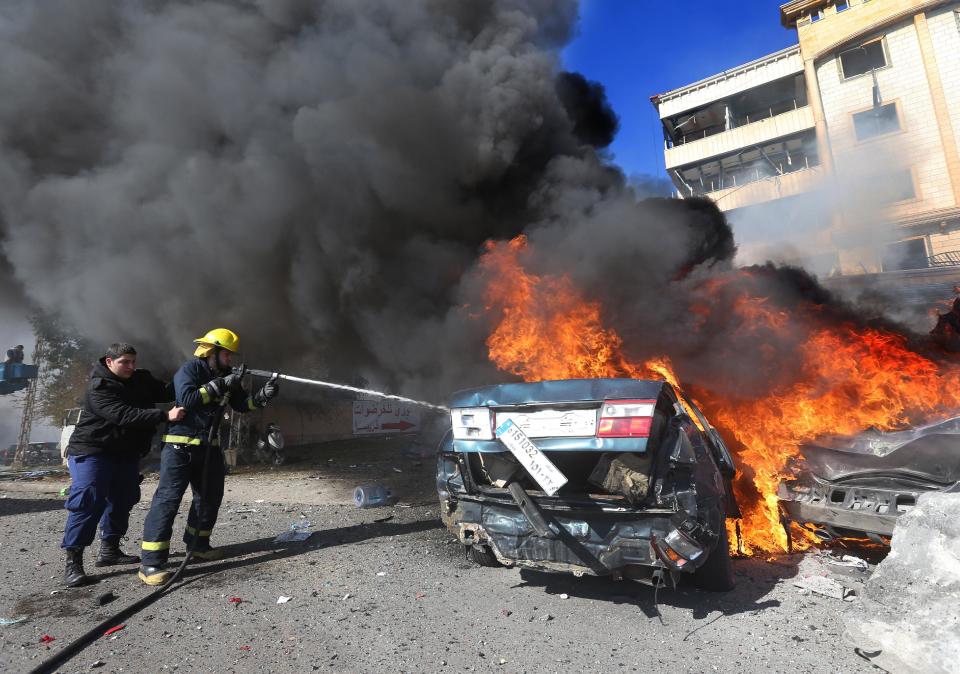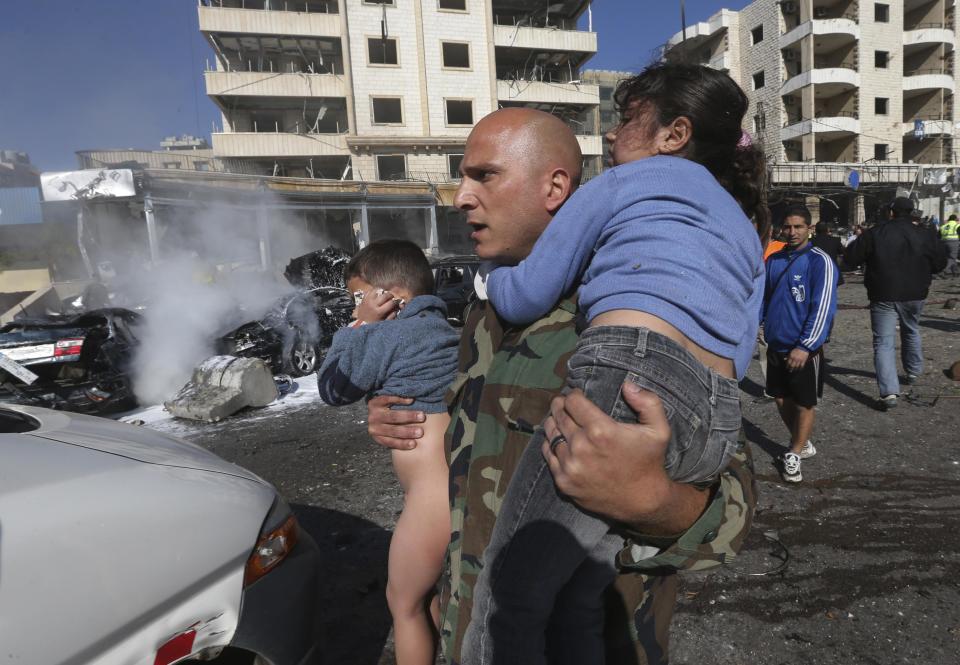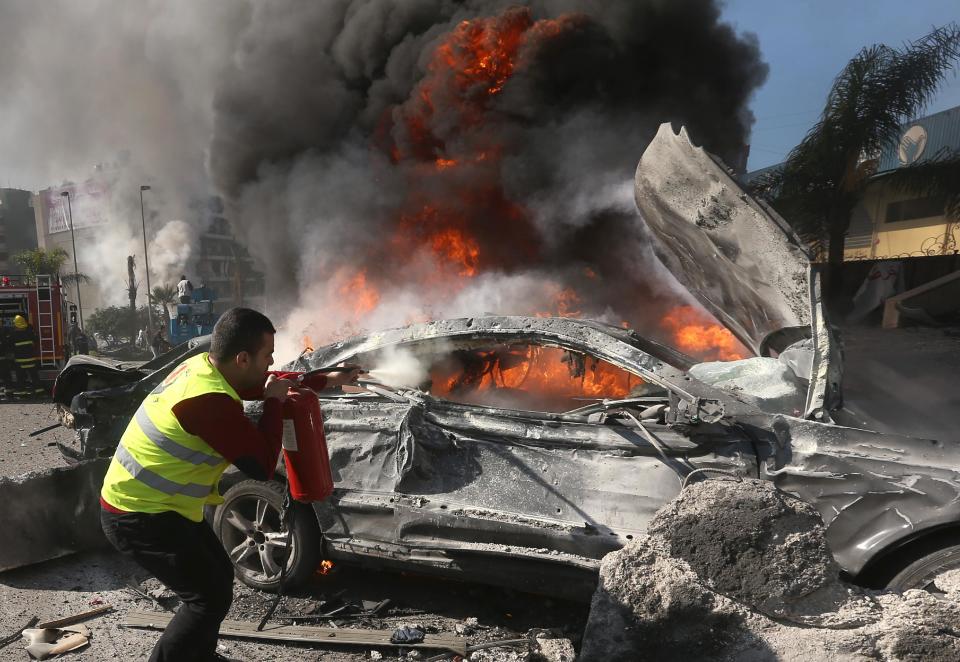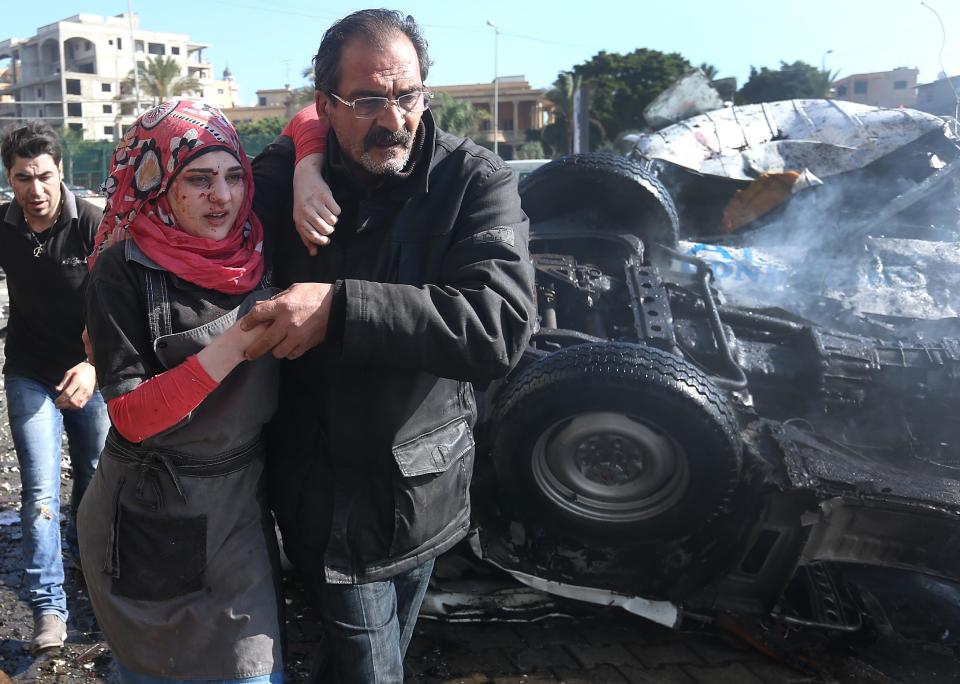Suicide blasts kill 4 in Lebanese capital
BEIRUT (AP) — Two suicide bombers blew up their cars near an Iranian cultural center in Beirut Wednesday, killing at least four people and wounding scores, in the latest in a string of deadly attacks targeting strongholds of the Shiite militant group Hezbollah and its allies. An al-Qaida-linked group claimed responsibility for the attack, saying it was retaliation for Hezbollah's involvement in the Syrian war alongside President Bashar Assad's forces.
The morning blasts in the Bir Hassan district set cars and trees ablaze and shattered the windows of nearby buildings as the wounded, including children, were loaded on stretchers into fire engines and ambulances.
Rahmeh Abboud, a 20-year-old student, said she was in a passenger van when she heard the explosions. The driver immediately stopped the car and told everybody to get out.
"The explosions were very strong, the ground shook. I came here and it was like the world had turned upside down," she said.
The Lebanese army said the bombers were driving BMW and Mercedes cars, which were packed with explosives and mortar shells to maximize the damage.
Health Minister Wael Abu Faour said the blasts killed four people and wounded more than 100.
The explosions seriously damaged the white facade of Iran's cultural center, despite blast walls that were recently erected around the white building. The state-run National News Agency quoted the Iranian embassy as saying no diplomats or workers were wounded.
Mangled metal hung from a smashed building that once held a pharmacy, clothing shop and a well-known Oriental sweet shop, Gondoline. Smeared blood and tattered clothes dried on the ground and the charred remains of six cars were at the site of the two bombs. Forensic officials in white body suits inspected a large crater near a building.
Dozens of soldiers blocked off the area with barbed wire and concrete barricades as armed young men pushed other bystanders back.
"I thought it was an earthquake," said Sam Hasna, 45, a Lebanese-Canadian citizen, owner of the Gondoline. "Everything was on fire, the whole store had crashed down. I saw shattered people, shattered cars, and I collapsed. Then I woke up in hospital."
Hasna's foot was injured and he was in shock. He returned to the bomb site to discover one employee had been killed and another was in a critical condition.
"I am trying to reserve the first ticket back to Canada," said Hasna, after years of building a life for himself and his son in Lebanon. "We tried, we tried, we tried."
The Abdullah Azzam Brigades said on its Twitter account that the "invasion of the Iranian cultural center" was in "retaliation for Iran's party fighting along the criminal regime in Syria." It was referring to Hezbollah, which has been a staunch ally of Assad's government and its fighters have been instrumental in helping dislodge Syrian rebels from key areas near the border with Lebanon.
"We will continue to target Iran and its party in Lebanon through their security, political and military offices" until Hezbollah fighters withdraw from Syria and scores of Islamic detainees are released from Lebanese jails, the group said.
It said Hezbollah will not "enjoy security in Lebanon until the people of Syria feel secure."
Hezbollah legislator Ali Ammar, speaking from the site of the blasts, said the group "will not withdraw from a strategic battle that aims to foil plans to divide the region."
The explosions came a few days after Prime Minister Tammam Salam formed a new cabinet to end almost 11 months of paralysis. He said Wednesday that the attack is "a message by forces of terrorism to continue in their plan to spread death in Lebanon."
"We got the message and we will respond to it with solidarity and our commitment to peace," he said.
Lebanese troops recently detained an alleged mastermind of similar attacks. Officials said he led them to several vehicles rigged with explosives.
One of the deadliest attacks occurred in November when two suicide attackers blew themselves outside the Iranian Embassy in Beirut, killing 23 people and wounded dozens. That attack was claimed by the Abdullah Azzam Brigades.
The group's leader was captured by Lebanese authorities in December and died in custody later in the month.







